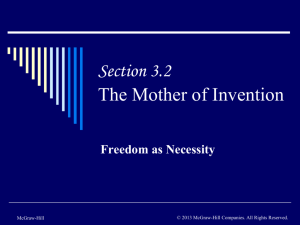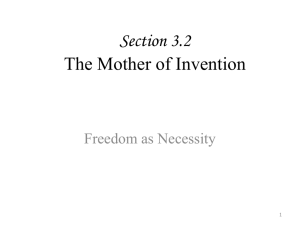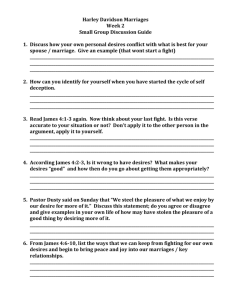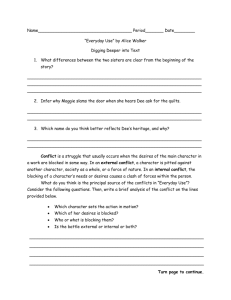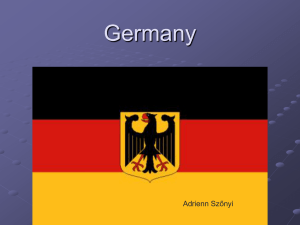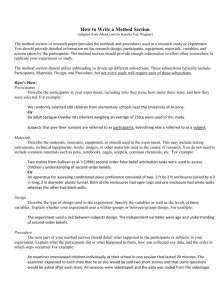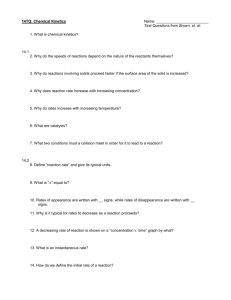Class Notes
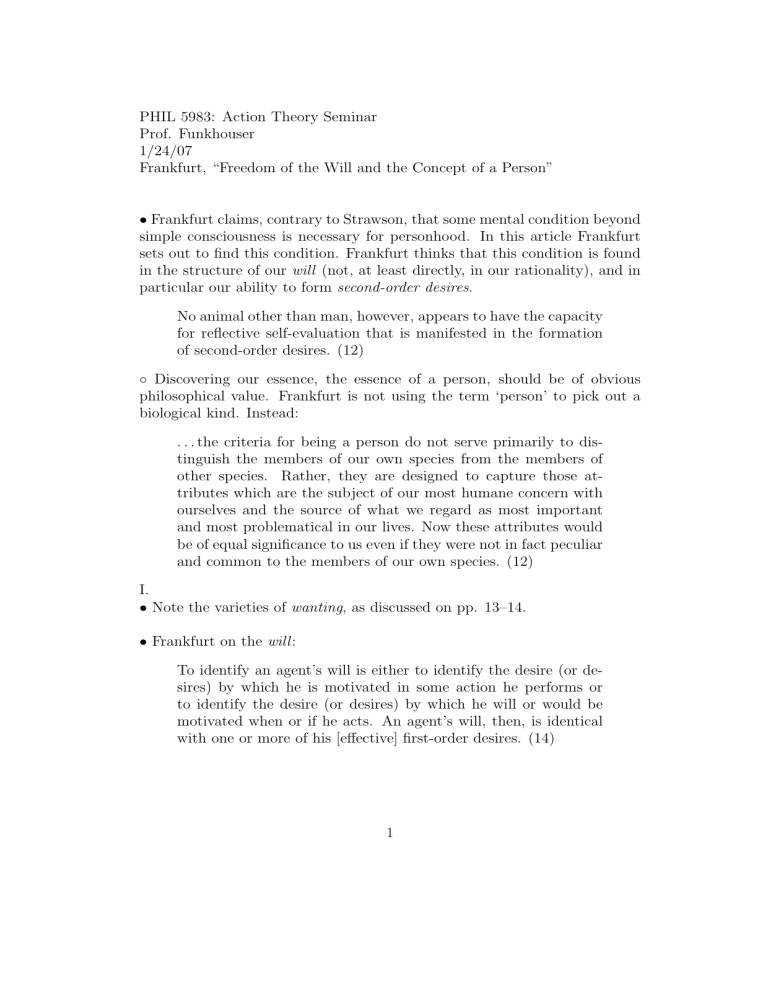
PHIL 5983: Action Theory Seminar
Prof. Funkhouser
1/24/07
Frankfurt, “Freedom of the Will and the Concept of a Person”
• Frankfurt claims, contrary to Strawson, that some mental condition beyond simple consciousness is necessary for personhood. In this article Frankfurt sets out to find this condition. Frankfurt thinks that this condition is found in the structure of our will (not, at least directly, in our rationality), and in particular our ability to form second-order desires .
No animal other than man, however, appears to have the capacity for reflective self-evaluation that is manifested in the formation of second-order desires. (12)
◦ Discovering our essence, the essence of a person, should be of obvious philosophical value. Frankfurt is not using the term ‘person’ to pick out a biological kind. Instead:
. . . the criteria for being a person do not serve primarily to distinguish the members of our own species from the members of other species. Rather, they are designed to capture those attributes which are the subject of our most humane concern with ourselves and the source of what we regard as most important and most problematical in our lives. Now these attributes would be of equal significance to us even if they were not in fact peculiar and common to the members of our own species. (12)
I.
• Note the varieties of wanting , as discussed on pp. 13–14.
• Frankfurt on the will :
To identify an agent’s will is either to identify the desire (or desires) by which he is motivated in some action he performs or to identify the desire (or desires) by which he will or would be motivated when or if he acts. An agent’s will, then, is identical with one or more of his [effective] first-order desires. (14)
1
• Frankfurt distinguishes 2 kinds of second-order desires: cases in which someone has a second-order desire but wants the first-order desire to remain unsatisfied (e.g., the physician’s desire to desire the drug) and cases in which someone wants the first-order desire to be satisfied (i.e., he wants the firstorder desire to be effective, as with most cases of second-order desires).
II.
• Frankfurt utilizes the above distinction (between 2 kinds of second-order desires) to provide his mental requirement for personhood:
Someone has a desire of the second order either when he wants simply to have a certain desire or when he wants a certain desire to be his will. In situations of the latter kind, I shall call his second-order desires “second-order volitions” or “volitions of the second order”. Now it is having second-order volitions, and not having second-order desires generally, that I regard as essential to being a person. (16)
◦ wanton: an agent with first-order desires who is not a person
The essential characteristic of a wanton is that he does not care about his will. His desires move him to do certain things, without its being true of him either that he wants to be moved by those desires or that he prefers to be moved by other desires. The class of wantons includes all nonhuman animals that have desires and all very young children. (16)
Some wantons can reason and deliberate.
Another nice passage:
He ignores the question of what his will is to be. Not only does he pursue whatever course of action he is most strongly inclined to pursue, but he does not care which of his inclinations is the strongest. (17)
◦ Example: 2 narcotics addicts. The unwilling addict endorses or identifies with one of his first-order desires, whereas the wanton addict does not.
It is in virtue of this identification and withdrawal, accomplished through the formation of a second-order volition, that the unwilling addict may meaningfully make the analytically puzzling statements that the force moving him to take the drug is a force other than his own, and that it is not of his own free will but rather against his will that this force moves him to take it. (18)
2
III.
• Frankfurt connects second-order volitions with free will. Frankfurt also distinguishes a free action from a free will . Freedom of action is doing what one wants to do. Similarly, freedom of will is willing what one wants to will.
The unwilling addict’s will is not free. This is shown by the fact that it is not the will he wants. (21)
◦ Note how this understanding of free will entails that those with free will possess second-order volitions.
◦ There could be desires of even higher-orders. Why, then, associate free will with only this second-order?
When a person identifies himself decisively with one of his firstorder desires, this commitment “resounds” throughout the potentially endless array of higher orders. (21)
IV.
• Frankfurt’s analysis shows why free will is important — free will consists in the satisfaction of second-order desires.
The satisfactions at stake are those which accrue to a person of whom it may be said that his will is his own. The corresponding frustrations are those suffered by a person of whom it may be said that he is estranged from himself, or that he finds himself a helpless or a passive bystander to the forces that move him. (22)
His analysis also shows why other animals lack free will — they lack secondorder volitions.
• On pp. 24–25, Frankfurt discusses the relevance of free action and free will to moral responsibility.
• Importantly, Frankfurt’s conception of free will has nothing whatsoever to do with determinism and whether it holds.
3
